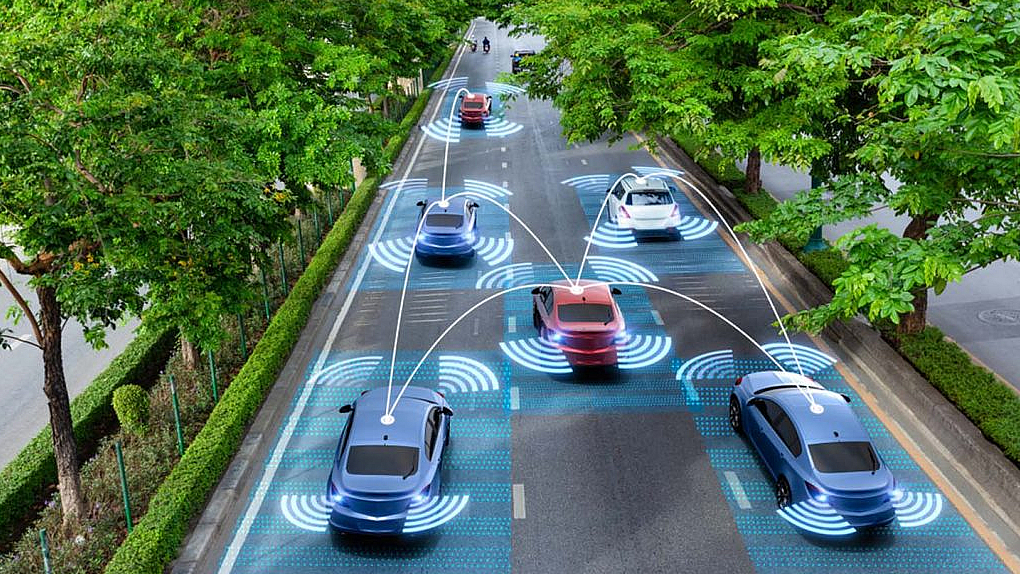The Role of AI in the Auto Industry

The automotive industry has undergone a significant transformation in recent years, largely driven by the integration of Artificial Intelligence (AI). As technology continues to evolve, AI has emerged as a critical enabler of innovation in various aspects of the automotive sector, including manufacturing, design, safety, and driving experience. In this article, we will explore the ways AI is revolutionizing the auto industry and the impact it has on both consumers and manufacturers.
AI in Vehicle Manufacturing
One of the most significant ways AI is transforming the auto industry is through vehicle manufacturing. AI-powered robots and machines have become integral to assembly lines, enhancing efficiency, precision, and safety. These robots are capable of performing repetitive tasks such as welding, painting, and assembly, freeing up human workers for more complex and creative roles.
AI technologies also play a crucial role in predictive maintenance. Sensors embedded in manufacturing equipment and vehicles monitor performance and detect potential issues before they become critical. This predictive capability helps reduce downtime, improve the reliability of production, and lower maintenance costs.
Autonomous Vehicles
The development of autonomous vehicles is perhaps the most exciting application of AI in the automotive industry. AI-powered self-driving cars are designed to navigate roads with little or no human intervention. By using a combination of sensors, cameras, and advanced machine learning algorithms, these vehicles can make real-time decisions based on their surroundings.
The safety implications of autonomous vehicles are profound. With AI, cars can respond to hazards faster than human drivers, reducing the likelihood of accidents. AI systems are capable of processing large amounts of data from their environment to detect pedestrians, other vehicles, traffic signs, and road conditions, ensuring the vehicle makes safe and timely decisions.
Moreover, autonomous vehicles promise to transform transportation by improving mobility for those who cannot drive due to age, disability, or other reasons. They also hold the potential to reduce traffic congestion and lower emissions, as AI optimizes routes and driving behavior.
AI in Vehicle Design
In vehicle design, AI is revolutionizing the process by enabling designers to simulate various conditions and performance scenarios. AI algorithms can analyze vast amounts of data to suggest optimal designs for safety, aerodynamics, fuel efficiency, and user experience. This technology allows automakers to create better-performing vehicles faster and more efficiently.
AI is also used in the personalization of vehicle features. By analyzing driver preferences, AI can recommend adjustments to seat settings, infotainment systems, and even driving modes, creating a more tailored and enjoyable driving experience.
Enhancing Vehicle Safety
Safety is a top priority in the auto industry, and AI is playing a key role in enhancing vehicle safety features. Advanced driver-assistance systems (ADAS), powered by AI, are already common in many vehicles. These systems include features like adaptive cruise control, lane departure warning, emergency braking, and parking assistance, all of which rely on AI to function.
AI is also involved in crash prediction and prevention. By analyzing data from previous accidents, AI systems can identify patterns and potential risks, allowing manufacturers to design cars that better protect passengers in the event of a collision. In the future, AI will continue to improve vehicle safety, with even more advanced systems being developed to prevent accidents before they happen.
AI and the Future of Driving
Looking ahead, AI promises to further reshape the driving experience. With the integration of AI-powered navigation systems, vehicles will be able to predict traffic conditions, optimize routes, and provide real-time updates to drivers. Moreover, as AI continues to advance, we can expect to see vehicles that are more connected than ever, with seamless integration of smart home devices, voice assistants, and real-time data analytics.
Additionally, AI is likely to play a significant role in the shift toward electric vehicles (EVs). By optimizing battery performance and energy consumption, AI can help extend the range of EVs and reduce charging times, making electric cars more practical for the masses.
Conclusion
AI is undeniably transforming the automotive industry, bringing innovations that improve manufacturing processes, enhance safety, and redefine the driving experience. As the technology continues to evolve, the role of AI in the auto industry will only grow, unlocking new possibilities for smarter, safer, and more efficient vehicles. The future of driving is not only autonomous but intelligent, with AI paving the way for a new era in transportation.
02/16/2025 14:11
